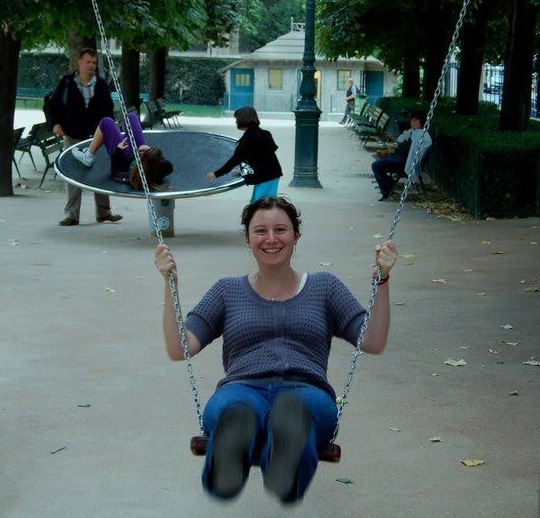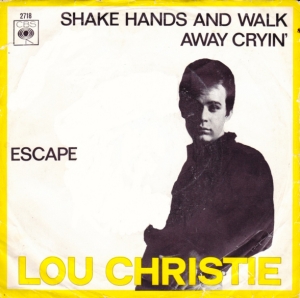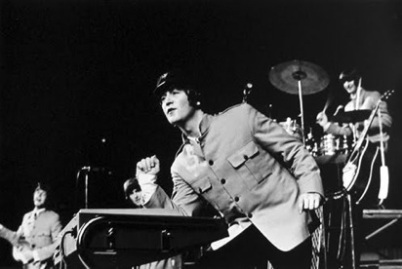
Still Waiting
by Clive Collins
I’m still waiting for time’s tide to turn and run back towards the shore.
Still waiting for all the number 32 buses I ever missed to turn up all at once
like a flock of vanilla-flavoured ice-cream coloured seagulls.
I’m still waiting for the Stones to start singing “I Am Waiting” one more time and Ray Davies
to stop being so tired, so tired of waiting.
I’m still waiting for my father to come home after his funeral, for the telephone I no longer possess, the one with the circular dial, to ring-a-ling-a-ling and hear voices say “hello”.
as in “hello, it’s mam” or Meg or Ray or Mick or David or any of the now accumulating
directory of the dead.
I am still waiting to be less of everything I seem to be—shy, thick, anxious, to be electrified to the quick by—by what I am not sure,
I’m still waiting for Godot, for God, for Go, oh, by the fountain in Town Hall Square on an evening in spring and a girl I’ve only ever had a glimpse of once before.
I am still waiting for the thunder in my head to rumble, for lighting to strike twice, the rain to clear.
And I am still waiting for the time when children can walk the streets of Anytown without the need for fear.
I am still waiting to pay back Kingsley Harmer, so aptly named, for the punch he gave me in the face because that was what he felt like doing at the time.
I’m still waiting for revenge to be served up piping hot straight from the oven just for a change.
I am still waiting because I wait therefore I am and because in scorn of all philosophers I think that life really is standing at a bus stop waiting for all those number 32s that never did turn up will.
I am still waiting in the queue not for a bus but for the Who outside the Il Rondo Ballroom in Leicester knowing I won’t get in because I didn’t.
I am still waiting in a ‘phone-box in the Suffolk countryside in 1970 to find out when the call comes through that me and the girl I waited by the fountain for two years earlier has got as tired of waiting (for me) as Ray Davies did for you.
I am still waiting for Barry Johnson to show up unannounced at my door with my exam results at the end of August in 1967 even though he will because he did, and I’m still seriously pissed.
I am still waiting to be kissed, maybe, by Barbara Kargbo on one of those hot afternoons in Freetown when I was on my own and she kept stopping by—for tea, was it? Or me, was it?
I am still waiting for sleep to claim and hold me in the way it used to do
I am still waiting for the end, boys, waiting for the end of the “Three Coins in a Fountain” because although my parents and sisters are enthralled by it—and we stood in line for tickets for hours—I, aged seven, decidedly am not.
And on this day and as I write I am still waiting for a time when women young and old can walk the streets of Anytown without the need for fear.
I am still waiting to know just why we are waiting, why we are waiting, why, oh, why, oh why we are waiting.
I am still waiting for all the signs that read “No Waiting” to be taken down.
I am still waiting to know the name of the idiot who said everything comes to him who waits.
I am still waiting for all the girls who might have wanted to kiss me to arrive breathless and eager to make up for lost time.
I am still waiting to finish reading À la recherche du temps perdu.
I am still waiting to be acknowledged as the literary spawn of Adrian Henri, which, after all, is not a lot to ask, is it?
I am still waiting for Katherine Constable to pay me back the £500 I lent her in 1982—with interest and with interest.
I am still waiting for another go standing on the edge of the tidal flow. I am still waiting till it’s time for me to go.
And still I’m waiting not for buses or old songs, telephone calls from the gone or kisses from the ether, for money repaid, revenge or retribution, understanding even, but just time to see the time when anyone, when everyone, can walk the streets of Anytown or Everytown without the need for fear.
PAINTING: Waiting Room for the Beyond by John Register (1988).
NOTE FROM THE AUTHOR: The thoughts in this piece were provoked by the idea of the things I’ve waited for in my own life, things in the past, the present and the time, however long that might be, yet to come.

NOTE FROM THE AUTHOR: Born in Leicester, England, Clive Collins has lived in Ireland, Sierra Leone, and now Japan. He is the author of two novels, The Foreign Husband (Marion Boyars) and Sachiko’s Wedding (Marion Boyars/Penguin Books). Misunderstandings a collection of short stories, was joint-winner of the Macmillan Silver PEN Award in 1994. He was a short-listed finalist in the 2009 Flannery O’Connor Award for Short Fiction. Carried Away and Other Stories is now available from Red Bird Chapbooks.










 ABOUT THE AUTHOR: Tobi Alfier is a multiple Pushcart nominee and a Best of the Net nominee. Current chapbooks are
ABOUT THE AUTHOR: Tobi Alfier is a multiple Pushcart nominee and a Best of the Net nominee. Current chapbooks are 






